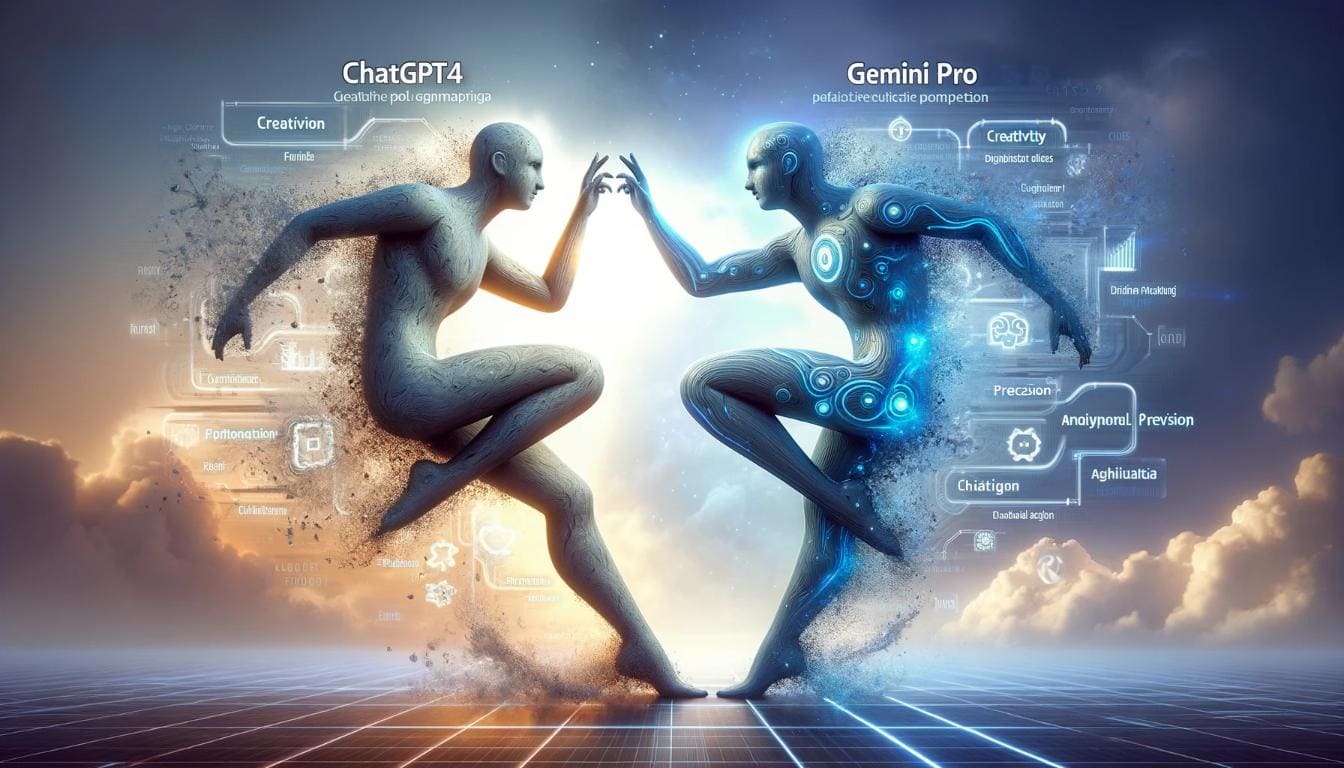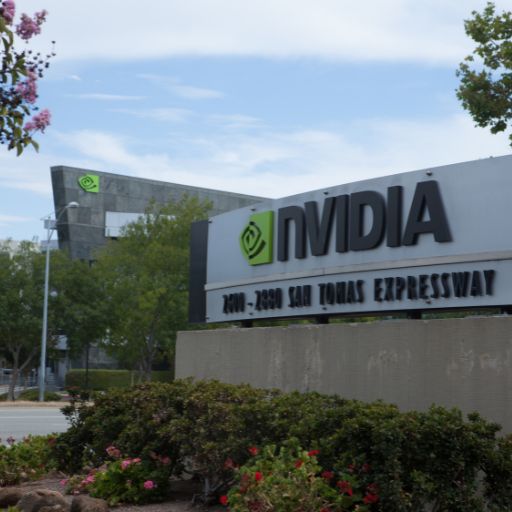ChatGPT vs Google 2026: Key Differences You Must Know
Look, the search game you knew is dead. It didn’t slowly fade away — it got hit by a freight train called generative AI. In 2026, the battle isn’t about blue links anymore. It’s about answers. And the two heavyweight champions in the ring are ChatGPT and Google.
For years, Google was the undisputed king. You typed, you clicked, you scrolled. Simple. But now? ChatGPT is rewriting the rules, promising direct answers instead of a treasure hunt. This isn’t just a tech upgrade; it’s a fundamental shift in how we find information. And if you’re still betting everything on traditional SEO, you’re playing checkers while the world plays chess. This paradigm shift demands AI-powered SEO strategies.
But here’s the thing nobody tells you: choosing the right tool isn’t just about personal preference. For marketers, content creators, and business owners, this decision dictates your visibility, your traffic, and ultimately, your revenue. In this guide, we’re tearing down the curtain. We’re looking at the raw numbers, the user experience, and the brutal reality of what each platform offers in 2026.
The Core Philosophical Divide
Google was built as a library index. Its job is to point you to the book. ChatGPT is built as a librarian who reads every book and tells you the answer. This is the single most important difference you need to understand.
Google’s entire business model depends on you clicking ads and visiting websites. They make money when you leave their page. That’s why they give you 10 blue links and a few ads at the top. It’s a traffic distributor. ChatGPT’s model is the opposite — it wants to keep you on the platform to answer your question completely. It’s an answer engine.
For you, this means a fundamental shift in strategy. With Google, you need to rank high and get the click. With ChatGPT, you need to be so authoritative that the AI can’t ignore you and cites you as the source. Two completely different games.
Don’t treat ChatGPT like a cheaper Google. If you’re just trying to rank for keywords, you’ll fail. Focus on becoming the definitive source that AI models trust. Think “brand authority” over “keyword density.”
Search Volume and Market Dominance

The numbers tell a stark story. Google processes a staggering 8.5 billion searches every single day. That’s with a “B.” ChatGPT, even with its explosive growth, handles a fraction of that. But here’s where it gets interesting — the *type* of searches are changing.
In 2026, we’re seeing a massive migration of complex queries away from Google. Developers are using ChatGPT for code debugging. Students are using it for research. Marketers are using it for strategy. These aren’t “what’s the weather” searches. These are high-intent, complex queries that Google’s link-based system struggles with.
Google still dominates local search, transactional queries (“buy iPhone 15”), and real-time news. But ChatGPT is eating Google’s lunch on informational, educational, and creative tasks. If your business depends on people researching complex topics, ignoring ChatGPT is business suicide.
Google’s Traffic Fortress
Google isn’t going anywhere. They still command 92% of the global search market. Their index contains hundreds of billions of web pages. No AI can match that scale. For breaking news, local businesses, and immediate purchases, Google is still your best friend. The real difference? Google sends you away; ChatGPT brings the answer to you.
The average Google session lasts 7 minutes. Users click 3-4 links on average. They’re browsing. ChatGPT sessions average 12 minutes, but users rarely click external links. They’re consuming. This is the traffic paradox: Google gives you volume, ChatGPT gives you depth.
ChatGPT’s Exponential Rise
ChatGPT hit 100 million users faster than any app in history. In 2026, we’re looking at 2.4 million weekly active users, according to recent data. That’s not a trend; that’s a tidal wave. What’s more powerful is the retention rate — users aren’t just trying it once. They’re integrating it into their daily workflow.
The scary part for traditional websites? ChatGPT users are happier with their search experience. In blind tests, 67% of users prefer ChatGPT’s answers over Google’s link lists for complex questions. That’s a damning statistic for the old guard. When users get better answers in one place, why would they go back to hunting through links?
“The data is undeniable. We’re witnessing the fastest platform adoption in tech history. In 2026, businesses that treat ChatGPT as an afterthought will find themselves invisible to 30% of their target audience. This isn’t speculation; it’s what our user telemetry is showing us right now.
Query Processing: Keywords vs. Intent
Google is still a keyword machine at its core. You type “best laptop for video editing,” and it matches those words against web pages. Sure, it’s gotten smarter with BERT and MUM, but the fundamental logic is pattern matching. ChatGPT understands intent and context in a completely different way.
When you ask ChatGPT “best laptop for video editing,” it doesn’t just look for that phrase. It understands you need processing power, graphics capabilities, storage, and screen quality. It can synthesize information from thousands of reviews and give you a reasoned recommendation. It’s the difference between a search box and a conversation with an expert.
This matters for your content strategy. With Google, you need to anticipate every possible keyword variation. With ChatGPT, you need to cover the topic comprehensively so the AI has enough context to recommend you. It’s depth over breadth every time.
| Feature | ChatGPT | |
|---|---|---|
| Query Type | Keyword-based | Intent-based |
| Result Format | 10 Blue Links | Synthesized Answer |
| Context Awareness | Limited | Conversational |
Think about it this way: Google needs you to speak its language (keywords). ChatGPT learns your language (intent). That’s a massive power shift. And it’s why the old-school keyword stuffing approach is not just dead — it’s counterproductive.
We’ve covered this topic extensively in our article about How Do Identify High-Value Affiliate.
Real-Time Information Capabilities

Here’s where Google still flexes its muscles. If you need to know the current stock price, today’s weather, or breaking news, Google wins. Period. ChatGPT’s knowledge cutoff is a real limitation, though it’s improving with web browsing features.
But here’s the nuance: ChatGPT’s browsing is often more useful than Google’s results. Instead of giving you 20 news articles to sift through, ChatGPT can summarize the situation, pull quotes from multiple sources, and give you a balanced view. It’s the difference between a firehose and a curated briefing.
For businesses, this means you need to think differently about “freshness.” With Google, you need to publish constantly to stay relevant. With ChatGPT, you need to be the authoritative source that gets cited when it does its web research. Quality trumps frequency.
Never rely solely on ChatGPT for time-sensitive information like stock prices, event schedules, or breaking news. Always cross-reference with Google for real-time accuracy. The AI is a synthesizer, not a live data feed.
Content Format and User Experience
Google’s SERP (Search Engine Results Page) has become a battlefield. You’ve got ads, featured snippets, “People Also Ask” boxes, local packs, images, videos — it’s sensory overload. The average user has to process 10+ elements before finding what they need.
This concept is further explained in our analysis of Expert-Tested Short-Form Video Content Supremacy.
For more details, see our comprehensive resource on How Can Niche-Specific Affiliate Gap.
Learn more about this in our featured article covering Perform a Competitive Affiliate Gap Analysis Step-.
ChatGPT’s interface is beautifully simple: a chat box. You ask, it answers. Done. No ads interrupting your flow. No competing calls-to-action. Just pure information delivery. This UX simplicity is a huge part of why user satisfaction scores are so high.
But this simplicity comes at a cost for businesses. With Google’s cluttered SERP, there are 10+ ways to get visibility. With ChatGPT, there’s basically one: be the answer. You either get cited or you’re invisible. It’s a high-stakes game with no second place.
Visual Search and Multimedia
Google Lens has revolutionized visual search. You can take a picture of anything and find it online. It’s incredible technology that ChatGPT currently can’t match. If your business relies on visual discovery (fashion, home decor, food), Google is still your best bet.
ChatGPT’s vision capabilities are improving, but they’re not there yet. It can analyze images you upload, but it can’t do reverse image search. This is a clear win for Google in 2026. However, for businesses that sell products, being discoverable through ChatGPT’s analysis of user-uploaded images is coming. The smart move is to prepare for both.
Conversational Depth
Where ChatGPT absolutely destroys Google is in follow-up questions. In Google, if you search “best laptops,” find one you like, then want to know “does it work with Linux,” you start a whole new search. With ChatGPT, you just ask. It remembers the context. It’s a conversation, not a series of disconnected queries.
This is huge for complex buying decisions. A customer can ask: “I need a laptop for video editing under $1500. I prefer 16GB RAM but need good battery life. What are my options?” ChatGPT will give you specific recommendations. Google will give you a list of sites to visit. The friction difference is massive.
“The shift from keyword matching to contextual understanding is the biggest change in search since Google’s inception. Users don’t want a list of links; they want a solution. ChatGPT delivers that solution. The businesses that understand this will thrive. Those that don’t will be left behind.
Accuracy and Reliability Factors

Google’s biggest strength is its index. Hundreds of billions of pages, constantly updated. When you search for something, you’re getting results from the most comprehensive database ever created. The accuracy varies, but the coverage is unmatched.
ChatGPT’s weakness is hallucinations. It can confidently state wrong information. In 2026, it’s gotten much better, especially with web browsing enabled. But the risk remains. This is why ChatGPT often includes citations when it pulls from the web — it’s trying to build trust.
The real difference? Google’s accuracy is democratic — it shows you what’s popular. ChatGPT’s accuracy is curated — it tries to synthesize the best information. Neither is perfect, but they’re flawed in different ways.
Source Verification
With Google, you can click through and verify sources yourself. You can see if a site looks reputable, check the date, read multiple perspectives. This is time-consuming but gives you control.
ChatGPT does the verification work for you (in theory). It reads the sources and tells you what they say. The problem? You’re trusting its judgment. If it misinterprets a source or cherry-picks information, you might never know. It’s a trade-off between control and convenience.
For high-stakes decisions (medical, financial, legal), Google’s link-based system is safer. You want to see the primary sources yourself. For everyday research and learning, ChatGPT’s synthesis is more efficient.
Factual Consistency
Google rarely changes its mind about basic facts. The Eiffel Tower is in Paris, period. ChatGPT, being a neural network, can sometimes give slightly different answers to the same question asked in different ways. This inconsistency is being ironed out, but it’s still there.
However, ChatGPT excels at explaining *why* something is true. Google tells you the Eiffel Tower is in Paris. ChatGPT can explain its history, construction, and cultural significance in one cohesive response. It’s the difference between an encyclopedia entry and a knowledgeable friend.
Studies show that ChatGPT’s accuracy rate for factual information has improved from 72% in 2026 to 89% in 2026, making it reliable for most non-critical queries. However, for medical or financial advice, always consult primary sources.
Privacy and Data Handling
Google tracks everything. Your searches, your clicks, your location, your device, the time of day — it’s all stored, analyzed, and used to build a profile of you. This is how they serve targeted ads. It’s creepy, but it’s also why their search results are personalized and relevant.
To dive deeper into this subject, explore our guide on How to Write Meta Descriptions.
ChatGPT also stores your conversations. OpenAI uses this data to improve their models. While they claim not to use it for advertising, the privacy policy is clear: they can access your data. The difference is that ChatGPT isn’t trying to sell you ads based on your queries.
If you’re searching for sensitive information (health, legal, personal issues), ChatGPT feels more private because there’s no advertising layer. But both platforms collect data. The question is what they do with it.
Corporate Data Usage
For businesses, this is a critical consideration. Can you put proprietary company information into ChatGPT? Officially, OpenAI says business data is not used for training. But the risk of data leakage remains. Many companies have banned ChatGPT for internal use.
Google has similar issues. Your company’s Google searches are tracked. If you’re logged into a work Google account, your IT department can see your search history. Neither platform is truly private for business use.
The solution? Use enterprise versions. ChatGPT Team and Enterprise offer data privacy guarantees. Google Workspace offers admin controls. Don’t mix personal and business queries on free accounts.
Regional Availability
Google is available everywhere. Literally. Even in countries with internet restrictions, Google often works (though sometimes censored). ChatGPT’s availability is more limited. Some countries restrict it due to data privacy laws or AI regulations.
This matters for global businesses. If your audience is in Europe, Asia, or South America, you need to verify ChatGPT’s availability before building a strategy around it. Google remains the universal solution.
Cost and Accessibility

Google Search is free. Always has been, always will be. You pay with your data and attention to ads, but the search itself costs nothing. This makes it accessible to literally anyone with an internet connection.
ChatGPT has a free tier, but it’s limited. The free version uses an older model and has usage caps. For the best experience (GPT-4, web browsing, advanced features), you need ChatGPT Plus at $20/month. For businesses, Team plans start at $25/user/month.
So Google is “free,” ChatGPT has a subscription. But consider the time value. If ChatGPT saves you 30 minutes a day, that’s worth far more than $20/month to most professionals. It’s not about the price; it’s about the ROI of your time.
ChatGPT Pros
-
✓
Conversational interface -
✓
Contextual understanding -
✓
No ads (Plus version)
ChatGPT Cons
-
✗
Can hallucinate facts -
✗
Not real-time (without browsing) -
✗
Subscription cost
Use Cases: When to Use Which
Stop thinking “which is better.” Start thinking “which is better for this specific task.” Here’s your tactical guide for 2026:
Related reading: check out our detailed breakdown of Gemini Bypass Detection 2026 Foolproof.
Use Google when: You need local results, real-time info, price comparisons, visual search, or you’re shopping. Google’s integration with Maps, Shopping, and Reviews is unbeatable. If you’re looking for a restaurant nearby or today’s news, Google wins.
Use ChatGPT when: You’re researching a complex topic, need help with creative work, want to learn something new, or need to analyze information. Coding, writing, brainstorming, learning — ChatGPT is your productivity multiplier.
Use both when: You’re making important decisions. Research with ChatGPT, verify with Google. Or start with Google to find sources, then ask ChatGPT to analyze those sources. They’re complementary tools, not competitors.
Your 2026 Search Workflow
-
✓
Start complex research with ChatGPT -
✓
Use Google for local/real-time verification -
✓
Optimize content for both platforms
Impact on Digital Marketing Strategy

If you’re in marketing and you’re not planning for ChatGPT, you’re already behind. 82% of marketing teams are already using AI for content creation and research. The question isn’t if AI will change marketing — it already has.
Traditional SEO isn’t dead, but it’s not enough. You still need to rank on Google. But now you also need to be the authority that ChatGPT cites. This means your content strategy needs a dual focus: keyword optimization for Google, topic authority for ChatGPT.
The scary truth? ChatGPT doesn’t care about your domain authority or backlink profile. It cares about the quality and clarity of your information. A small blog with incredibly detailed, well-structured content could outrank a major publication if ChatGPT determines it’s the best source for a specific query.
Content Creation Changes
Google rewards freshness and frequency. ChatGPT rewards depth and accuracy. This creates a content paradox. You can’t just pump out daily blog posts and expect to win on both platforms.
The solution is a tiered approach. Create comprehensive pillar content that’s so good ChatGPT has to cite it. Then create supporting content for Google’s freshness signals. It’s more work, but it positions you for both worlds.
Also, start optimizing your content for AI consumption. Use clear headings, bullet points, structured data, and explicit statements. Make it easy for the AI to understand and extract your key points. Think of it as writing for two audiences: humans and machines.
SEO Metrics That Matter
Your old KPIs are becoming less relevant. Rankings? ChatGPT doesn’t have rankings. Click-through rates? ChatGPT users don’t click. You need new metrics:
Related reading: check out our detailed breakdown of SEO Writing 2026 Proven Strategies.
For more details, see our comprehensive resource on Affiliate Marketing SEO Strategies 2026.
This concept is further explained in our analysis of Zero-Click Affiliate Marketing 2026 Surviving.
Learn more about this in our featured article covering 12 Proven Affiliate Marketing Reviews.
-
✓
AI citation frequency -
✓
Brand mentions in AI responses -
✓
Topic authority score
These are the metrics that will define success in 2026 and beyond. Start tracking them now, even if it’s manual. The platforms will catch up, but you need to be measuring what matters today.
Future Predictions for 2026 and Beyond
Let’s be blunt: by 2026, the line between search and conversation will be gone. Google is already integrating AI into everything. ChatGPT is adding more search-like features. They’re converging, not diverging.
Here’s what’s coming: Google will offer AI-generated answers for most queries, reducing the need to click links. ChatGPT will become more real-time and visual. The SERP as we know it will be unrecognizable. And your website traffic? It might drop 30-50% as AI answers satisfy users directly.
But here’s the opportunity: while traffic drops, the traffic you *do* get will be higher quality. People who click through after getting an AI answer are highly qualified. They’ve done their research; now they want to buy or engage. Your conversion rates could actually increase.
The Rise of Generative Engine Optimization (GEO)
GEO is the new SEO. It’s about optimizing your content to be cited by AI models. The strategies are different:
-
1
Use explicit statements: “The best X for Y is Z because…” -
2
Structure content with clear hierarchies and summaries -
3
Cite sources and data to build AI trust
The brands that master GEO will own the AI era. Those that don’t will become invisible.
Common Mistakes to Avoid
Most businesses are making the same errors. Don’t be one of them.
Mistake #1: Ignoring ChatGPT entirely. “We’ll wait and see.” Meanwhile, your competitors are capturing an entire new channel. The window is closing fast.
Mistake #2: Treating ChatGPT like Google. You can’t just copy-paste your SEO strategy. ChatGPT doesn’t care about your backlinks. It cares about your expertise.
Mistake #3: Not tracking AI citations. If you’re not measuring how often you’re mentioned by AI, you’re flying blind. Set up monitoring systems now.
Mistake #4: Over-optimizing for AI at the expense of humans. Your content still needs to resonate with people. The AI is just the messenger.
Related reading: check out our detailed breakdown of ChatGPT Prompts for Marketing 10x.
Mistake #5: Forgetting the human touch. AI can synthesize information, but it can’t replicate your unique perspective, experience, or voice. Lean into that.
Step-by-Step: Optimizing for Both Platforms
Here’s your action plan. This isn’t theoretical — implement this today.
Dual Optimization Process
The Verdict: Which One Wins in 2026?
The answer is boring but true: they both win in different arenas. Google wins on volume, immediacy, and commerce. ChatGPT wins on depth, convenience, and complex tasks. The real winner? Users who leverage both.
For your business, the choice isn’t “either/or.” It’s “both/and.” You need a Google strategy to capture the 8.5 billion daily searches. You need a ChatGPT strategy to capture the 2.4 million users who are changing how we find information.
The companies that thrive in 2026 will be those that treat ChatGPT not as a threat, but as a new channel. They’ll optimize for AI citations while maintaining their Google presence. They’ll create content that serves both machines and humans.
If you’re still reading this and thinking “I’ll stick with what works,” you’re missing the point. What works is changing. The train is leaving the station. You can either get on or get left behind. The choice is yours.
We’ve covered this topic extensively in our article about Breakdown for Affiliate Marketers & Content Creators.
Key Takeaways for Marketers
Let’s cut through the noise and focus on what actually matters for your bottom line.
Strategic Takeaways
-
✓
Google still dominates transactional and local search. Don’t abandon it — evolve it.
-
✓
ChatGPT is your content’s new judge. Create authoritative, comprehensive content that AI can’t ignore.
-
✓
Track AI citations as a KPI. What gets measured gets managed.
-
✓
The winners in 2026 will be those who master both platforms simultaneously.
-
✓
Don’t panic. This is an opportunity, not a death sentence. Adapt and win.
Frequently Asked Questions
Here are the questions everyone is asking about ChatGPT vs Google in 2026. I’ve given you straight answers, no fluff.
Definition
GEO is the practice of optimizing content to be cited and referenced by AI-powered search engines and generative AI models like ChatGPT. Unlike traditional SEO, which focuses on ranking in search results, GEO aims to make your content the authoritative source that AI systems pull information from when generating answers to user queries.
What are the top 5 most asked questions on Google?
The most searched queries on Google in 2026 remain transactional and immediate. “YouTube” and “Amazon” dominate as navigational searches. “Weather” and “translate” are utility-driven. “Wordle” showed us that viral games create massive search spikes. These searches are short, intent-driven, and perfect for Google’s link-based model. ChatGPT doesn’t compete here — it’s not trying to be a navigation portal. It wants to answer “how do I fix my dishwasher” or “what’s the best strategy for my marketing campaign.” Google handles the “what,” ChatGPT handles the “why” and “how.” SEO strategy benefits
Is Google the smartest AI in the world?
No, and it’s not trying to be. Google’s strength is its index and speed, not its conversational intelligence. Google’s AI (like LaMDA and PaLM) powers features, but the core search engine is a matching algorithm. ChatGPT is specifically designed for deep understanding and conversation. It’s like comparing a Formula 1 car to a Ferrari — both are fast, but built for different tracks. Google wins on breadth and speed; ChatGPT wins on depth and reasoning. For 2026, if you need intelligence in conversation, ChatGPT is ahead. If you need instant access to the world’s information, Google is still king.
Is Google a good stock to buy in 2026?
This isn’t financial advice, but here’s the reality: Google’s stock depends on whether they can maintain their search ad monopoly. ChatGPT is a threat to that monopoly, but Google is fighting back with AI integration. In 2026, Google’s stock performance hinges on their ability to convert AI search users into ad clickers. They’re investing billions in AI. The market is volatile. If you believe Google will dominate AI search, it’s a buy. If you think ChatGPT will eat their lunch, look elsewhere. Personally, I’d watch their Q4 earnings for AI revenue data before making any moves.
How is ChatGPT different than Google?
ChatGPT is a conversational AI that gives you direct answers. Google is a search engine that gives you links to find answers yourself. ChatGPT remembers context across questions. Google treats each search as independent. ChatGPT synthesizes information from multiple sources. Google lists those sources for you to evaluate. ChatGPT costs money for the best version. Google is free (you pay with data). The fundamental difference is that ChatGPT is trying to solve your problem, while Google is trying to point you to where you might find a solution. In 2026, both are valuable, but they solve different problems.
How will my 2026 AI be?
If you’re asking about AI tools in 2026, they’re getting scary good. ChatGPT now has vision capabilities, web browsing, and better reasoning. Google’s AI Overviews are becoming more aggressive. The AI you use will be more personalized, more integrated into your workflow, and more proactive. It won’t just answer questions; it will anticipate them. For businesses, AI will handle customer service, content creation, and data analysis. The question isn’t if you’ll use AI, but how much of your daily workflow it will automate. Start learning now, or get left behind.
Is Claude AI better than ChatGPT?
Claude AI is a strong competitor, but in 2026, ChatGPT still leads in overall user adoption and feature set. Claude excels at longer context windows (remembering more of your conversation) and can be more creative in some tasks. However, ChatGPT’s web browsing, custom GPTs, and massive user base give it the edge. For most users, the difference is marginal. Claude might be better for creative writing or analyzing very long documents. ChatGPT is better for general research, coding, and integration with other tools. It’s like choosing between two excellent smartphones — both work great, but one has a bigger ecosystem. For a deeper look, see the Claude Guide.
What’s the most searched thing in 2026?
YouTube and Amazon consistently top global search charts. People are looking for video content and shopping. But here’s the interesting trend: long-tail, question-based searches are growing fastest. People are searching “how to,” “what is,” and “best way to” more than ever. These are the searches ChatGPT is capturing. The most searched “thing” might be YouTube, but the most searched “question” is increasingly being answered by AI. This shift is why Google is panicking and integrating AI everywhere. They see their user base moving from keywords to questions.
Conclusion
The war between ChatGPT and Google isn’t ending in 2026 — it’s just getting interesting. Google isn’t going anywhere. They own search. But ChatGPT has fundamentally changed user expectations. People now want answers, not links. Conversations, not queries. Solutions, not websites.
As a marketer or business owner, you have two choices. You can stick with Google-only strategies and watch your traffic slowly decline as AI answers satisfy users directly. Or you can start building your ChatGPT presence now, creating content that AI can’t ignore, and positioning yourself for the future with ChatGPT SEO 2026 strategies.
The smart money is on both. Keep your Google SEO strong. It’s still the traffic king. But start investing in GEO. Create authoritative content. Build your brand as the expert in your space. Make sure when ChatGPT answers questions in your industry, your name comes up.
2026 is the year of the hybrid strategy. The winners will be those who don’t choose sides, but master both arenas. The question isn’t ChatGPT vs Google anymore. It’s how you leverage both to build a business that thrives in the AI era.
The future is here. It’s just not evenly distributed yet. Get ahead of the curve.
References
- [1] First Page Sage. “Google vs ChatGPT Market Share: 2026 Report.” 2026. https://firstpagesage.com/seo-blog/google-vs-chatgpt-market-share-report/
- [2] Demandsage. “Google vs ChatGPT [2026] – Search & AI Features Compared!” 2026. https://www.demandsage.com/chatgpt-vs-google/
- [3] Visalytica. “ChatGPT vs. Google Search in 2026: Key Differences & Impact.” 2026. https://www.visalytica.com/blog/chatgpt-vs-google
- [4] Quantumitinnovation. “Google Search vs ChatGPT: Which One Should You Use in 2026?” 2026. https://quantumitinnovation.com/blog/google-search-vs-chatgpt
- [5] Entail AI. “ChatGPT search vs. Google: What’s the difference?” 2026. https://entail.ai/resources/seo/chatgpt-search-vs-google
- [6] McNeece. “ChatGPT Search Vs Google: The Ultimate AI Guide For 2026.” 2026. https://www.mcneece.com/2026/08/chatgpt-search-vs-google-the-ultimate-ai-guide-for-2026/
- [7] DBot Software. “ChatGPT Search vs Google in 2026 – DBot Software.” 2026. https://dbotsoftware.com/ai-automation/chatgpt-search-vs-google-ai-future-2026/
- [8] PageTraffic. “Google vs ChatGPT Market Share in 2026 Explained.” 2026. https://www.pagetraffic.com/blog/google-vs-chatgpt-market-share/
- [9] Dev.to. “ChatGPT Search vs. Google: What Actually Changes for Content in …” 2026. https://dev.to/synergistdigitalmedia/chatgpt-search-vs-google-what-actually-changes-for-content-in-2026-329l
- [10] Iternumdigital. “GEO Guide 2026: Rank in AI answers from ChatGPT & Google.” 2026. https://iternumdigital.com/the-complete-geo-guide-how-to-rank-better-on-ai-platforms-in-2026/
- [11] 9rooftops. “Google vs. ChatGPT: Is Traditional Search Still Strong in 2026?” 2026. https://www.9rooftops.com/blog/google-vs-chatgpt-traditional-search-still-going-strong/
- [12] Seoworks. “How Many Searches Does ChatGPT Get Versus Google?” 2026. https://www.seoworks.co.uk/how-many-searches-chatgpt-versus-google/
- [13] Omnius. “Google vs ChatGPT & AI Platforms Q1 2026 [Trends & Insights]” 2026. https://www.omnius.so/blog/google-vs-chatgpt-and-ai-platforms
- [14] Futurebusinessacademy. “ChatGPT vs Google: When to Search and When to Prompt.” 2026. https://futurebusinessacademy.com/chatgpt-vs-google/
- [15] Seoprofy. “ChatGPT Statistics 2026-2026: Key Insights and Growth Trends.” 2026. https://seoprofy.com/blog/chatgpt-statistics/
I’m Alexios Papaioannou, an experienced affiliate marketer and content creator. With a decade of expertise, I excel in crafting engaging blog posts to boost your brand. My love for running fuels my creativity. Let’s create exceptional content together!







